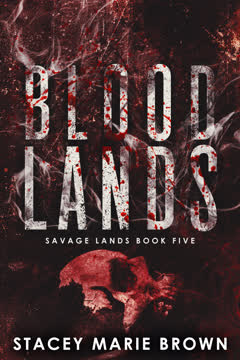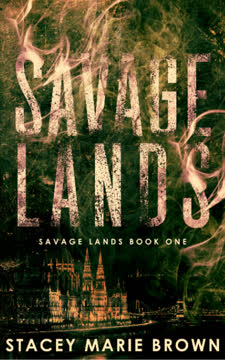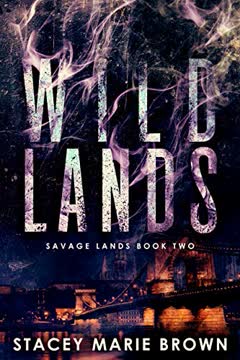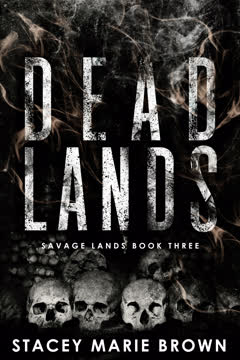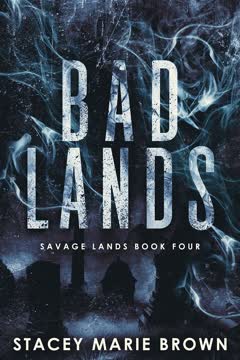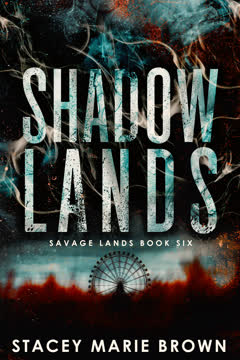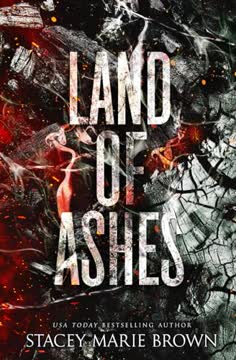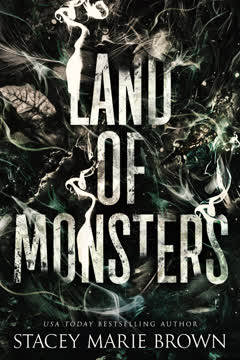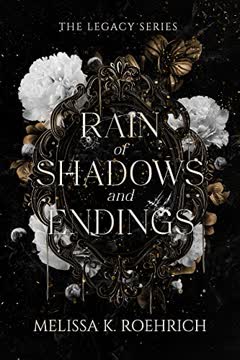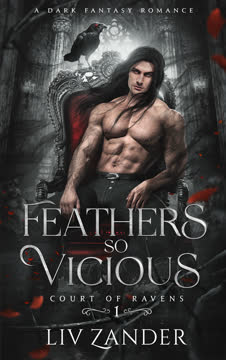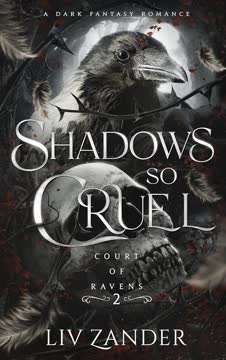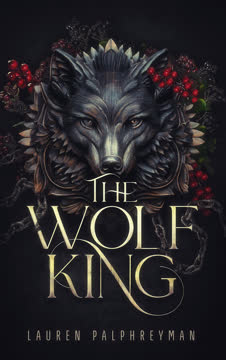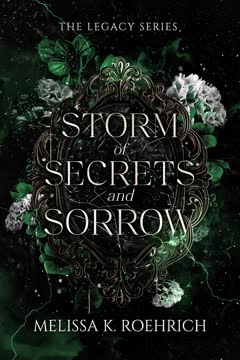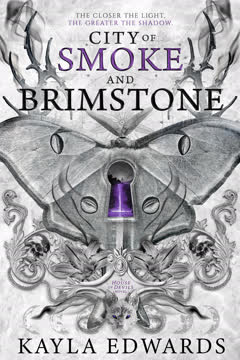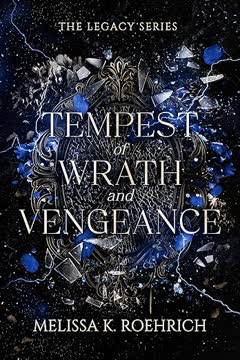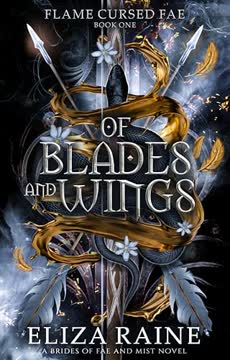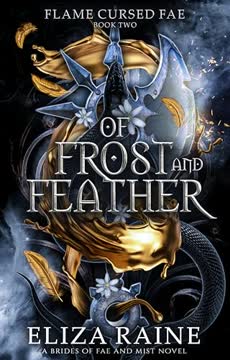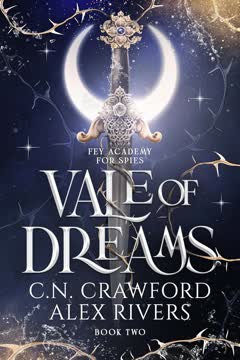Plot Summary
Arena of Impossible Choices
Brexley is thrust into a brutal arena where survival means making unthinkable choices. Forced to fight friends Hanna and Scorpion under Istvan's sadistic watch, she faces the agony of betrayal and the horror of being pitted against those she loves. The arena is not just a test of strength, but of loyalty and soul, as Istvan manipulates every outcome for his own gain. The trauma of killing or being killed is compounded by the knowledge that every action is a move in Istvan's larger game. Brexley's humanity is tested to its breaking point, and the blood she spills stains her conscience, setting the tone for the relentless moral and physical challenges ahead.
Sacrifice and Survival
When Brexley is forced to fight her beloved uncle Andris to the death, the emotional stakes reach their peak. The pain of choosing between her own survival and the life of the man who raised her is excruciating. Andris, embodying selfless love, urges Brexley to end his suffering, sacrificing himself so she can live and lead. The act of mercy killing shatters Brexley, leaving her hollow and guilt-ridden. This moment crystallizes the theme of sacrifice that runs through the story, as Brexley's actions are driven by love, loyalty, and the unbearable cost of survival in a world that demands everything from its heroes.
Breaking and Bonding
After the arena, Brexley is brutalized by guards, her body and spirit battered. In the aftermath, she finds solace and strength in Warwick, the legendary Wolf, whose presence is both grounding and electrifying. Their connection, both physical and magical, becomes a lifeline, allowing Brexley to reclaim a sense of self amid chaos. Their intimacy is raw, healing, and necessary—a way to forget pain and reaffirm life. This chapter explores how trauma can both break and bond, forging relationships that are as much about survival as they are about love. The Wolf and the Grey become inseparable, their fates entwined by shared suffering and desire.
Allies and Betrayals
Brexley's circle of allies—Rosie, Kek, Ash, Scorpion, and others—are all scarred by the violence and betrayals of the prison. Trust is fragile, as every new arrival could be a spy or a threat. The return of Tracker, presumed dead, raises questions and stirs old loyalties. The group must navigate shifting alliances, the ever-present threat of informants, and the pain of losing friends like Zuz and Maddox. The emotional toll of constant suspicion and grief is immense, but it also sharpens Brexley's resolve. The bonds of chosen family are tested, and only those who adapt and trust in each other can hope to survive.
Factory of Despair
The prisoners are forced into grueling labor, sewing uniforms and manufacturing weapons for their oppressors. The factory is a place of exhaustion, hunger, and despair, where even the smallest act of kindness or rebellion is dangerous. Brexley witnesses the suicide of a fellow inmate and the casual cruelty of the guards, deepening her sense of helplessness. Yet, even here, seeds of resistance are sown. Information is gathered, alliances are formed, and the will to fight back is kindled. The factory becomes both a symbol of oppression and a crucible for the rebellion to come.
Mutiny in the Shadows
Brexley and her allies begin to plot an escape, using every scrap of information and every hidden talent. Communication is risky, but Opie and Bitzy, the mischievous fae, become invaluable messengers. The plan hinges on exploiting the weaknesses in the prison's magical defenses and the guards' routines. Scorpion, Ash, and Killian are drawn into the conspiracy, each bringing unique strengths and vulnerabilities. The tension mounts as the day of the Games approaches, and the group must decide whom to trust and how much to risk. The mutiny is a desperate gamble, but it is fueled by hope and the refusal to be broken.
The Spark of Rebellion
A brutal assault on Rosie by the guards becomes the catalyst for open revolt. Killian's intervention, killing a guard, sparks chaos as prisoners and guards clash in a deadly melee. The carefully laid plans are thrown into disarray, and Brexley must improvise, using her emerging magical abilities to try to break the enchanted gates. The rebellion is messy, costly, and only partially successful, but it marks a turning point. The prisoners are no longer passive victims—they are fighters, willing to risk everything for a chance at freedom. The cost is high, and the outcome uncertain, but the spark of rebellion cannot be extinguished.
Games of Power
Istvan, now more powerful and unhinged, stages ever more elaborate and sadistic Games, pitting Brexley and her friends against wild beasts, each other, and the monstrous faux-fae guards. The arena becomes a theater of suffering, where every death serves Istvan's ego and political ambitions. The arrival of foreign dignitaries and the shifting alliances among the human and fae elite raise the stakes. Brexley's magical powers, tied to her emotions and her connection with Warwick, begin to manifest in unpredictable and dangerous ways. The Games are not just about survival—they are about who will control the future of the world.
Unleashing the Grey
Pushed to the brink by loss, betrayal, and the threat to those she loves, Brexley finally unleashes the full force of her magic—the power of the Grey. Lightning, wind, and spectral armies answer her call, devastating enemies and allies alike. The nectar, a source of unimaginable power, amplifies her abilities but also threatens to consume her. The cost of this power is immense: friends and foes die indiscriminately, and Brexley is left horrified by what she has become. The line between savior and monster blurs, and the true danger of unchecked power is revealed.
Blood and Betrayal
Tracker's betrayal is revealed—he has been Istvan's spy all along, feeding information that leads to the capture of Tad, Simon, and the theft of the nectar. The sense of safety within Brexley's chosen family is shattered, and the consequences are immediate and devastating. Istvan consolidates his power, executing rivals and seizing control of the nectar, while Brexley and her allies are left reeling. The pain of betrayal is as sharp as any physical wound, and the lesson is clear: in a world ruled by power, trust is both a weapon and a liability.
The Labyrinth of Suffering
Imprisoned, tortured, and forced to witness the suffering of friends, Brexley and her allies are pushed to their limits. The hole—a place of darkness and despair—becomes a crucible where hope is all but extinguished. Killian, once a powerful leader, is broken by iron and isolation. Warwick and Brexley's bond is tested by pain and separation. The psychological torment is as intense as the physical, and the only way to survive is to hold on to love, memory, and the faint hope of rescue. The labyrinth of suffering is both a literal and metaphorical space, where the true cost of resistance is revealed.
The Price of Power
Brexley's unique magic, a blend of Druid, necromancer, and fae queen, is both her greatest asset and her deepest curse. The nectar amplifies her abilities but also threatens to destroy her humanity. Every use of power comes with a cost—lives lost, souls consumed, and the risk of becoming the very monster she fights against. The death of Tad, the most powerful Druid, at her own hands is a devastating blow, underscoring the danger of unchecked magic. The price of power is isolation, guilt, and the constant fear of losing oneself to darkness.
The Wolf and the Grey
The relationship between Warwick and Brexley is the emotional core of the story—a bond forged in trauma, passion, and shared power. Their connection is both healing and destructive, a source of strength and a potential path to ruin. Together, they are unstoppable, but their love also threatens to unleash forces beyond their control. The Wolf and the Grey are both myth and reality, embodying the duality of creation and destruction. Their love is a rebellion against fate, a refusal to be defined by the world's cruelty, but it is also a reminder that even the strongest bonds can be tested by pain and loss.
The Nectar's Call
The nectar, a magical substance of unimaginable potency, becomes the focal point of the struggle for control. It calls to Brexley, promising the power to save or destroy, to heal or to kill. The temptation is overwhelming, and the risk of corruption is ever-present. The battle for the nectar is not just a physical contest but a spiritual and moral one, as Brexley must decide what she is willing to become to protect those she loves. The nectar is both a prize and a curse, a symbol of the dangers of absolute power.
Escape and Consequence
The escape from Věrhăza is a desperate, bloody affair, marked by sacrifice, loss, and the shattering of illusions. Not everyone makes it out alive, and those who do are forever changed. The outside world is no safer, as Istvan's reach extends beyond the prison walls. The cost of freedom is measured in blood and trauma, and the scars—physical and emotional—will never fully heal. The escape is not an ending but a transition to a new phase of struggle, as the battle for the future intensifies.
Family and Farewell
Brexley is briefly reunited with her mother and the necromancer clan, only to lose them again as the curse of black magic reclaims them. The pain of finding and losing family is a recurring theme, underscoring the fragility of happiness in a world at war. Farewells are never final, as the bonds of love and memory persist, but every loss leaves a mark. The search for belonging, for a place to call home, is as important as the fight for survival.
The Gathering Storm
With Istvan's power growing and the nectar in his possession, Brexley and her allies must seek new alliances. The fae, Povstat, and other resistance groups are drawn into the conflict, each with their own agendas and wounds. The threat of war hangs over everything, and the choices made now will determine the fate of nations. The gathering storm is both literal and metaphorical, as magic, politics, and personal vendettas collide in a struggle for the soul of the world.
The Monster Within
Brexley's greatest enemy is not Istvan, but the darkness within herself. The power of the Grey, amplified by the nectar, threatens to consume her, turning her into the very monster she fears. The line between hero and villain blurs, as every act of violence, every sacrifice, brings her closer to the abyss. The struggle to retain her humanity, to hold on to love and hope, is the true battle. The monster within is always waiting, and the only way to defeat it is to face it head-on.
The Final Betrayal
Tracker's ultimate betrayal, the loss of Tad, and the capture of the nectar mark the lowest point for Brexley and her allies. Istvan's victory seems complete, and the forces of resistance are scattered and demoralized. The sense of safety and trust within the group is destroyed, and the future looks bleak. Yet, even in the darkest moments, the seeds of resistance remain. The final betrayal is not the end, but a call to arms—a reminder that hope can survive even the deepest wounds.
The Fall of Kings
Istvan's consolidation of power, the execution of rivals, and the establishment of a new order mark the end of an era. The old kings and queens are dead or deposed, and a new, more ruthless regime takes their place. The cost of victory is high, and the world is left scarred and uncertain. The fall of kings is both a warning and an opportunity—a chance to build something new from the ashes, or to repeat the mistakes of the past.
The Villain's Awakening
In the aftermath of the final battle, Brexley is forced to confront the reality of her own power and the destruction she has wrought. The line between savior and destroyer is erased, and she is left alone, feared by those she sought to protect. The villain's awakening is a moment of painful self-awareness—a recognition that the greatest danger may come not from without, but from within. The story ends not with triumph, but with the haunting question: can Brexley ever return from the darkness, or has she become the very thing she fought against?
Characters
Brexley Kovacs
Brexley is the heart of the story—a young woman forged in trauma, loss, and impossible choices. Raised by her uncle Andris after her father's death, she is both fiercely loyal and deeply scarred. Her journey is one of constant sacrifice, as she is forced to kill, betray, and endure unimaginable suffering to protect those she loves. Brexley's unique magical heritage—a blend of Druid, necromancer, and fae queen—makes her both a target and a weapon. Her relationship with Warwick is both salvation and damnation, grounding her even as it threatens to unleash uncontrollable power. Brexley's greatest struggle is internal: the fight to retain her humanity and resist becoming the monster her enemies fear.
Warwick Farkas
Warwick, known as the Wolf, is a figure of mythic strength and violence, yet his love for Brexley reveals a capacity for tenderness and vulnerability. Scarred by his own past and the horrors of war, he is both protector and destroyer. His bond with Brexley is magical and physical, a connection that heals and empowers but also threatens to consume them both. Warwick's loyalty is absolute, and his willingness to sacrifice for those he loves is both his greatest strength and his deepest weakness. He is haunted by the fear of losing Brexley to darkness, and his journey is one of learning to trust, to hope, and to fight not just for survival, but for redemption.
Istvan Markos
Istvan is the primary antagonist—a man driven by an insatiable hunger for power, control, and legacy. His cruelty is matched only by his cunning, as he manipulates friends and enemies alike to achieve his goals. Istvan's willingness to sacrifice anyone, including his own family, marks him as a true villain. He is both a product and a creator of the world's brutality, embodying the dangers of unchecked ambition and the seductive allure of absolute power. His obsession with the nectar and the creation of a new race of super-soldiers is both visionary and monstrous, and his downfall is as much a warning as a victory.
Andris Takacs
Andris is Brexley's uncle and surrogate father, a man defined by love, sacrifice, and quiet strength. His willingness to die for Brexley is the emotional core of the story's early chapters, and his loss is a wound that never fully heals. Andris represents the best of humanity—compassion, honor, and the courage to do what is right, even at great personal cost. His death is both a catalyst for Brexley's transformation and a haunting reminder of what is at stake.
Scorpion
Scorpion is a fae warrior whose bond with Brexley is forged in shared suffering and mutual respect. He is both a brother and a comrade, willing to risk everything for those he loves. Scorpion's loyalty is unwavering, and his sense of humor and strength provide much-needed relief in a world of darkness. His own traumas and losses mirror Brexley's, and their relationship is a testament to the power of chosen family.
Killian
Killian is a fae lord whose past as a pirate and self-made ruler adds layers of complexity to his character. Once powerful and proud, he is broken by imprisonment and loss, yet retains a core of resilience and honor. His relationship with Brexley is marked by rivalry, attraction, and mutual respect. Killian's journey is one of humility and adaptation, as he learns to fight not just for power, but for people.
Rosie
Rosie is a former sex worker whose strength and compassion make her a vital member of Brexley's circle. She endures repeated abuse and trauma, yet refuses to be broken. Rosie's ability to find hope and kindness in the darkest circumstances is both inspiring and heartbreaking. She represents the countless unnamed victims of oppression, and her survival is an act of defiance.
Tracker
Tracker is a human soldier whose sense of inferiority and resentment make him vulnerable to Istvan's manipulation. His betrayal is a devastating blow to Brexley and her allies, shattering trust and exposing the dangers of unchecked ambition and wounded pride. Tracker's journey is a cautionary tale about the cost of loyalty and the ease with which good intentions can be twisted into evil.
Tad (Tadhgan)
Tad is the oldest and most powerful Druid, a figure of wisdom, patience, and quiet strength. His guidance is invaluable to Brexley and her allies, and his death at her hands is a moment of profound tragedy. Tad represents the old world, the balance of magic and nature, and the dangers of tampering with forces beyond comprehension. His loss is both a personal and a cosmic wound.
Hanna
Hanna is Brexley's childhood friend, forced by circumstance to become both enemy and ally. Her journey is one of betrayal, grief, and reluctant courage. Hanna's suffering and choices mirror Brexley's, and her fate is a reminder of the cost of war and the fragility of innocence. She is both a victim and a survivor, and her story is a testament to the enduring power of friendship.
Plot Devices
The Arena and the Games
The recurring motif of the arena and the Games serves as both a literal and metaphorical crucible. It is where characters are forced to confront their deepest fears, make impossible choices, and reveal their true selves. The Games are a tool of Istvan's control, a way to break spirits and sow distrust, but they also become a stage for resistance and transformation. The shifting rules and escalating cruelty of the Games mirror the unpredictability and brutality of the world, and their outcomes drive the plot's emotional and moral stakes.
The Nectar
The nectar is the story's central MacGuffin—a magical substance of limitless potential and danger. It is both a prize and a poison, calling to Brexley and amplifying her powers while threatening to consume her. The battle for the nectar is a battle for the soul of the world, and its presence raises questions about the nature of power, the limits of control, and the cost of victory. The nectar's influence is both external and internal, shaping events and characters alike.
Magical Bonds and Connections
The magical bonds between Brexley, Warwick, Scorpion, and others are both a source of strength and a vulnerability. These connections allow for shared power, healing, and communication, but they also expose characters to pain, loss, and the risk of losing themselves. The bonds are a metaphor for the ways in which love, trauma, and shared experience can both save and destroy. They are also a narrative device for exploring themes of identity, agency, and the limits of self-sacrifice.
Betrayal and Trust
The story is rife with betrayals—personal, political, and magical. Foreshadowing is used to build tension, as characters' loyalties are constantly in question and the threat of treachery looms over every alliance. The revelation of Tracker's betrayal is a masterstroke of narrative structure, shattering the illusion of safety and forcing characters to confront the reality that trust is both essential and dangerous. The interplay of trust and betrayal drives the plot and deepens the emotional stakes.
The Monster Within
Brexley's arc is structured as a classic hero's journey, but with a twist: the greatest enemy is not external, but internal. The story uses foreshadowing, dreams, and visions to hint at the danger of unchecked power and the risk of becoming what one fights. The final chapters invert the traditional narrative, as Brexley is forced to confront the reality that she may be the villain of her own story. This device adds depth and complexity, challenging readers to question the nature of heroism and the cost of victory.
Analysis
Blood Lands is a harrowing exploration of power, trauma, and the blurred lines between heroism and monstrosity. Stacey Marie Brown crafts a world where survival demands impossible choices, and every act of resistance comes with a price. The novel interrogates the seductive allure of power—whether political, magical, or personal—and the ways in which it can corrupt even the noblest intentions. Through Brexley's journey, the story examines the cost of love, the pain of betrayal, and the danger of becoming what one fights against. The use of magical bonds and the motif of the arena highlight the interconnectedness of suffering and hope, while the ever-present threat of betrayal underscores the fragility of trust. Ultimately, Blood Lands is a meditation on the human capacity for both destruction and redemption, challenging readers to consider what it means to fight for a better world—and what one is willing to sacrifice to achieve it. The lesson is clear: true power lies not in domination, but in the courage to face one's own darkness and choose, again and again, to fight for the light.
Last updated:
Review Summary
Blood Lands receives mixed reviews, with an overall positive rating. Many readers praise the intense action, character development, and addictive nature of the series. However, some criticize the repetitive plot elements and lack of progression. The book is described as dark and emotionally charged, with high stakes and brutal scenes. Fans appreciate the chemistry between characters and the world-building, while others feel the series is being stretched unnecessarily. Despite divided opinions, most readers express eagerness for the final installment.
